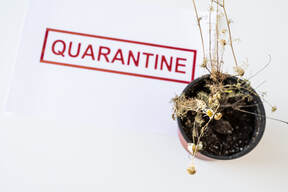 By Michelle Woodward, LPC In the recent months, we’ve had to face unexpected changes and hardship of a pandemic and there is no doubt that we are in the beginning stages of a huge mental health crisis involving psychological trauma. COVID-19 will leave a large percentage of our population traumatized and not knowing where to get the help they need. I recently watched a video by Bessel Van der Kolk, leading expert in trauma and author of The Body Keeps Score. In the video he discusses Psychological Trauma in the Age of Coronavirus. I've highlighted six points from the video on how we can minimize the impact of this trauma on ourselves throughout (and after) quarantine. Though the video was created specifically with Coronavirus in mind many of the points can be applied to all traumas. So, what sets people up for trauma and what can we do about it? See these helpful tips below:
How each of us comes out of this pandemic in the end is going to rely heavily on our own perception of the traumatic events that we are each faced with, our own personal perception and resiliency to traumatic events and the behaviors and manner in which we choose to deal with and move on from (or otherwise stay stuck in) the trauma. Take note of these six pre conditions for trauma during quarantine so that you can recognize if you’re still experiencing them after. If you can identify the preconditions that resonate with you, the better able you are to prevent further trauma from occurring. The most important thing is that we rely on each other, be kind to each other and realize that it’s OK for your solution and journey to be different than mine, even though we are both dealing with the same facts along the way. And never be afraid to ask for help and talk about it. At MMFT, we are here for you! Watch full video here. https://catalog.pesi.com/squeezeunautheticatedlink/QlVrUllKOEpNN1k9 Comments are closed.
|
Categories
All
Archives
March 2023
|
[email protected]

 RSS Feed
RSS Feed